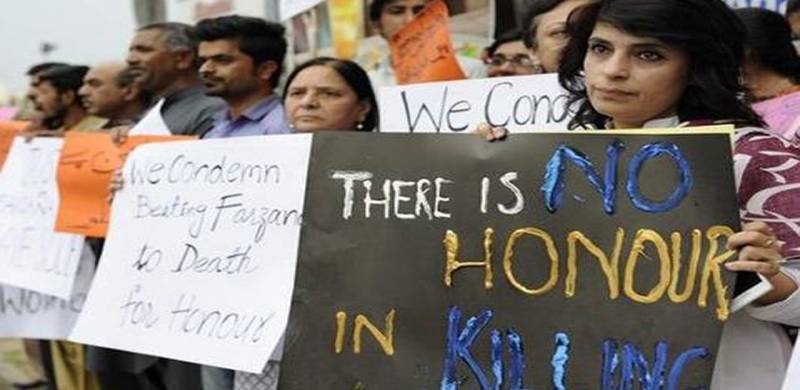
There seems to be no respite from karo-kari (honour) killings across the country, especially in rural Sindh, as more than 70 people have been killed in Sindh this year.
Despite there being so many cases of honour killing, investigations into most of the cases have been inconclusive.
The 78 victims comprised of 50 women and 28 men. A source has informed media that 57 cases were still pending and there has been no conviction in any case.
Recently, Sindh Inspector General of Police Dr Syed Kaleem Imam, has asked investigators for a detailed report on the cases of karo-kari with regards to convictions.
He further ordered officials that investigations should be without a loophole and that a proposal should be developed to end the problem of karo-kari.
According to DIG Headquarters Abdul Khaliq Shaikh, honour killing is a social problem that is rooted in tribal culture and a mindset that women were subservient to men.
He added that a solution to the problem would be to change this mindset and empowering women in society. He further apprised media that police was currently involved in a project in collaboration with UNDP to prevent honour killings.
Human rights organisations and legislators call for reform
Both parliamentarians and human rights organisations have called for reforms to tackle with the pressing issue of karo-kari. It has been argued that though the problem lies in the attitude of the families of the victims, there also need to be reforms in the overall criminal justice system.
The legislator was of the view that we need to analyse how to reform the criminal justice system for better and effective results. She added that blaming culture was just an excuse and the problem should be looked at from the perspective of law.
Despite there being so many cases of honour killing, investigations into most of the cases have been inconclusive.
According to a report in Dawn, from January to June 2019, 78 people have lost their lives to karo-kari, out of which only 65 cases were registered. Of the cases that have been registered, 90 percent cases are currently pending trial due to various reasons.
The 78 victims comprised of 50 women and 28 men. A source has informed media that 57 cases were still pending and there has been no conviction in any case.
Recently, Sindh Inspector General of Police Dr Syed Kaleem Imam, has asked investigators for a detailed report on the cases of karo-kari with regards to convictions.
He further ordered officials that investigations should be without a loophole and that a proposal should be developed to end the problem of karo-kari.
The horrendous cultural practice continues to persist despite there being widespread criticism against it in the society. Police have trouble investigating such crimes as the perpetrators and victims usually belong to the same family or tribe.
According to DIG Headquarters Abdul Khaliq Shaikh, honour killing is a social problem that is rooted in tribal culture and a mindset that women were subservient to men.
He added that a solution to the problem would be to change this mindset and empowering women in society. He further apprised media that police was currently involved in a project in collaboration with UNDP to prevent honour killings.
Human rights organisations and legislators call for reform
Both parliamentarians and human rights organisations have called for reforms to tackle with the pressing issue of karo-kari. It has been argued that though the problem lies in the attitude of the families of the victims, there also need to be reforms in the overall criminal justice system.
PPP leader Nafisa Shah has opined that we need to treat all crime equally. She has argued that the law pertaining to honour killings is vague.
The legislator was of the view that we need to analyse how to reform the criminal justice system for better and effective results. She added that blaming culture was just an excuse and the problem should be looked at from the perspective of law.
